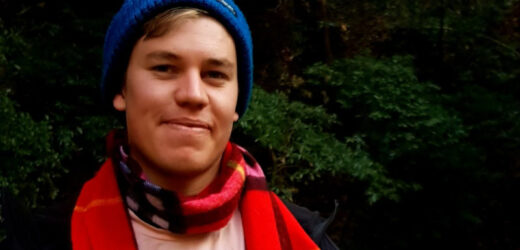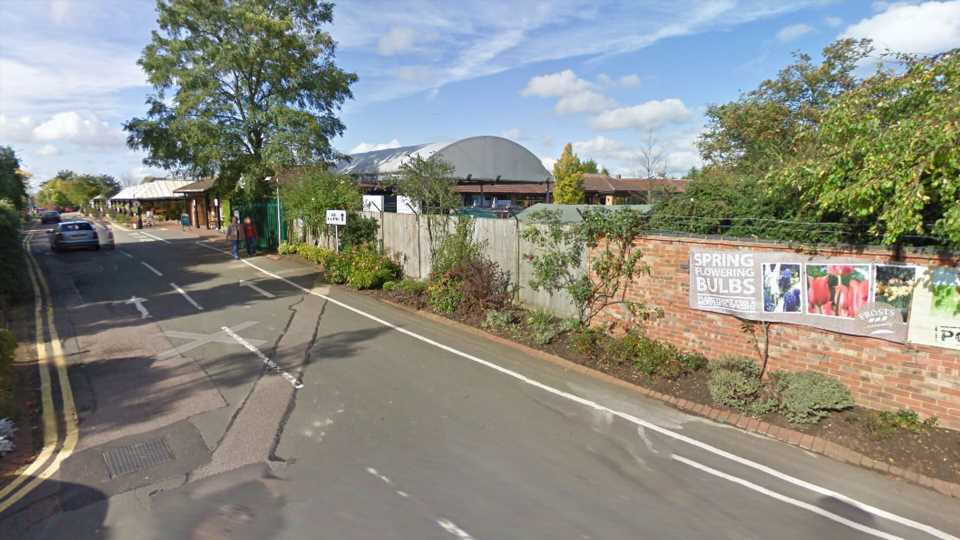Save articles for later
Add articles to your saved list and come back to them any time.
The mother of a young man who was critically injured while on holiday in South Korea and later died in Melbourne has called for laws to change to allow organ donation surgery on people whose deaths are imminent.
Associate Professor Sally Catt has written to a Victorian parliamentary inquiry asking for the legalisation of organ donation under anaesthesia to prevent organs of registered donors going to waste, as she says was the case with her son, Angus.
Angus Catt died tragically in February this year.
But some experts believe the change would create an ethical grey area in which the organ removal would be the cause of death, and could put some people off registering as donors.
Angus Catt died at The Alfred hospital in February after falling from a four-storey building at a party in South Korea on January 22.
After surgery in Seoul, the 26-year-old was returned to Australia in an induced coma, but tests showed Angus’ brain injury meant he would “never live other than in a vegetative state”.
His family discovered Angus, a carer for NDIS clients, was on the Australian Organ Donor Register and decided to proceed with donations. Four recipients were found and preparations made for transplants.
Sally Catt, with her husband Jim and son Will, wants laws changed to allow people such as her late son, a registered organ donor, to have their wishes carried out.Credit: Simon Schluter
“When we all heard it was happening, it made us feel so much better,” said Associate Professor Catt, an embryologist.
“It’s so rare for a young man to have done this, I said, ‘great, all for it’. He said he’d donate everything: tissue, large organ donation and he could donate to research.”
But because Angus did not die within the brief window in which organs remain viable after life support is withdrawn, his organs were damaged by oxygen deprivation and could not be saved.
His mother, who is director of education in reproduction and development at Monash University, has asked the parliamentary legal and social issues committee to recommend legalising surgery to retrieve organs from registered donors, with family approval, before circulatory death occurs. That is when a person stops breathing after removal of life support.
Under Australian laws, the so-called “dead donor rule” demands patients are deceased before organs can be removed. But if death takes longer than about 90 minutes, the organs are damaged and cannot be transplanted.
Professor Catt told the inquiry into boosting registered donor numbers that this rule meant that “the four potential recipients lost the gift of life that they desperately needed. Angus was denied his wish to donate his organs”.
According to DonateLife Victoria, which works with the national Organ and Tissue Authority to coordinate organ donation, the waiting list rose from 1600 to 1800 during the pandemic.
In addition, about 14,000 people are on dialysis, some of whom may need a kidney transplant. The largest waiting list is for kidneys.
Professor Sally Catt wants a community discussion about introducing laws to allow organ donation via surgery on people who will die imminently, are registered donors and have next of kin approval.Credit: Simon Schluter
In Victoria, only 23 per cent of eligible adults are registered organ donors.
Catt proposes that in cases such as Angus’, where life support for an organ donor is being withdrawn, organs could be removed under general anaesthesia.
This would be strictly limited to cases where a decision had been made by the patient’s next of kin, in consultation with doctors, meaning it “would not result in any deaths other than ones which are inevitable and imminent”.
DonateLife Victoria medical director Dr Rohit D’Costa said the experience of Angus’ family was not uncommon.
“It seems another loss because many families tell us the one good thing in a terrible tragedy is that they may be able to help others.”
Outside of voluntary assisted dying medicine, it is illegal to administer any medical intervention that would hasten death.
D’Costa said the proposal outlined in Catt’s submission involved “a huge ethical minefield” and he supported current law and practice. “But that is not saying it’s not worth having this discussion.”
Professor Jackie Leach Scully, a bioethicist on the National Health and Medical Research Council – Australian Health Ethics Committee and at the University of NSW, agreed the issue should be discussed, “because it puts families, donors and doctors in some agonising situations”.
Scully, an organ recipient, said while the option proposed by Catt may have been a good outcome for her family, there was a risk it could put people off registering as donors.
“I can see why the family wanted that to happen, it could have saved lives,” Leach Scully said. “But the practical risk is it may, in the end, decrease the number of [donated] organs.”
Dr Simon Longstaff, executive director of The Ethics Centre, said while the concept could be discussed “it takes a number of novel and potentially troubling directions” because the principal upon which organ donation operates is that it occurs when a person is deemed deceased, by brain or circulatory death.
“You’re either alive or you’re dead in this system [but] you would effectively be establishing a precedent in which a person unable to consent would have their organs removed,” he said, adding that a person registering as a donor did so knowing they would be dead when it took place.
“The interesting grey area would be if the proposal is in circumstances in which Angus Catt found himself, where he’s consented to organ donation and heading irreversibly towards death, could you remove organs [such as a kidney] without causing death itself.” This is not currently legal or proposed in any jurisdiction.
The Victorian Attorney-General’s office was contacted for comment.
The legal and social issues committee is not due to report until next year.
Fascinating answers to perplexing questions delivered to your inbox every week. Sign up to get our Explainer newsletter here.
Most Viewed in National
From our partners
Source: Read Full Article





